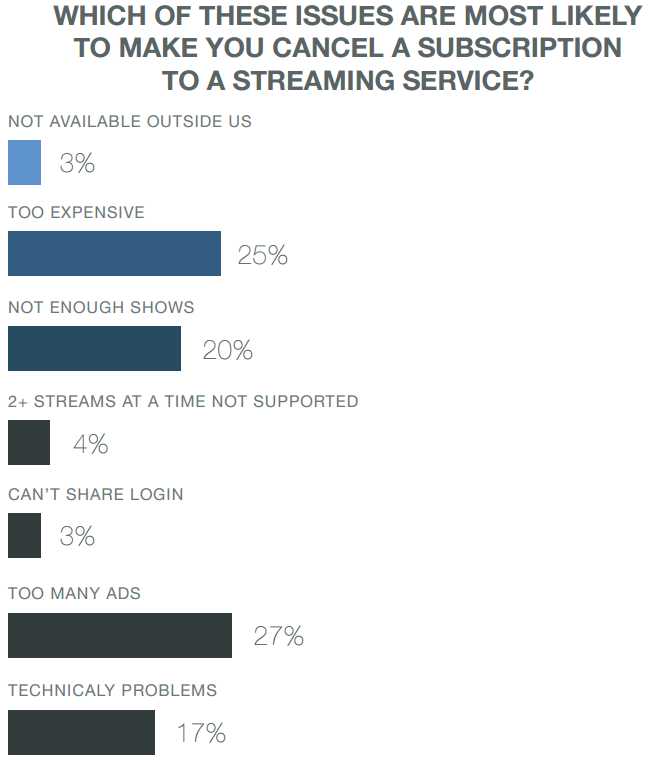- Qualcomm Launches Snapdragon 4 Gen 2 Mobile Platform
- AMD Launches Ryzen PRO 7000 Series Mobile & Desktop Platform
- Intel Launches Sleek Single-Slot Arc Pro A60 Workstation Graphics Card
- NVIDIA Announces Latest Ada Lovelace Additions: GeForce RTX 4060 Ti & RTX 4060
- Maxon Redshift With AMD Radeon GPU Rendering Support Now Available
Biggest Reason For Canceled Streaming Service Subscriptions? Advertising
This may come as a surprise to no one, but one of the biggest reasons people cancel their streaming subscriptions is advertisements. Consequently, Netflix’s absolute lack of advertisements has helped it retain most of its subscribers from month to month.
It’s no secret that advertising helps fuel a multitude of markets, from magazines to TV to websites to online services, but many have a real problem (rightfully so, in my opinion) with advertisements being present in a paid service. Look no further than YouTube: its Red service exists primarily as a way for people to avoid advertisements. In some cases, people really are willing to pay more for a less-intrusive service.
This information comes from Clearleap, an IBM company, which conducted research on the video-on-demand market. As the graphic below highlights, 27% of people who cancel their streaming service do so because of the ads, beating out “Too Expensive”, which comes in at 25%.

It’s interesting in a way that the top two reasons people cancel their streaming service is because of reasons that contrast each other: services would be less expensive with ads, but people don’t want them. That presents a real challenge, especially for companies like Netflix which produces an enormous amount of its own content, and still keeps its monthly fee arguably quite low (considering what’s on offer).
This research (PDF) is chock-full of other interesting bits of information. When it comes to sharing passwords for sites like Netflix, Hulu, et al, 48% don’t share at all, whereas 42% share with family (which is allowed with many services). On the topic of technical issues, 49% have said that they’ve experienced buffering issues (no surprise there), and tying into that, 24% have experienced a delayed start.
What might really strike you as interesting is that overall, many are not using streaming services as a replacement for cable TV quite yet. Per these results, 52% of people who have access to both watch them equally, which a notable result as cable TV has even more advertisements than most streaming services, yet most people continue to subscribe even though cable TV is almost always more expensive than even the best streaming services out there.




